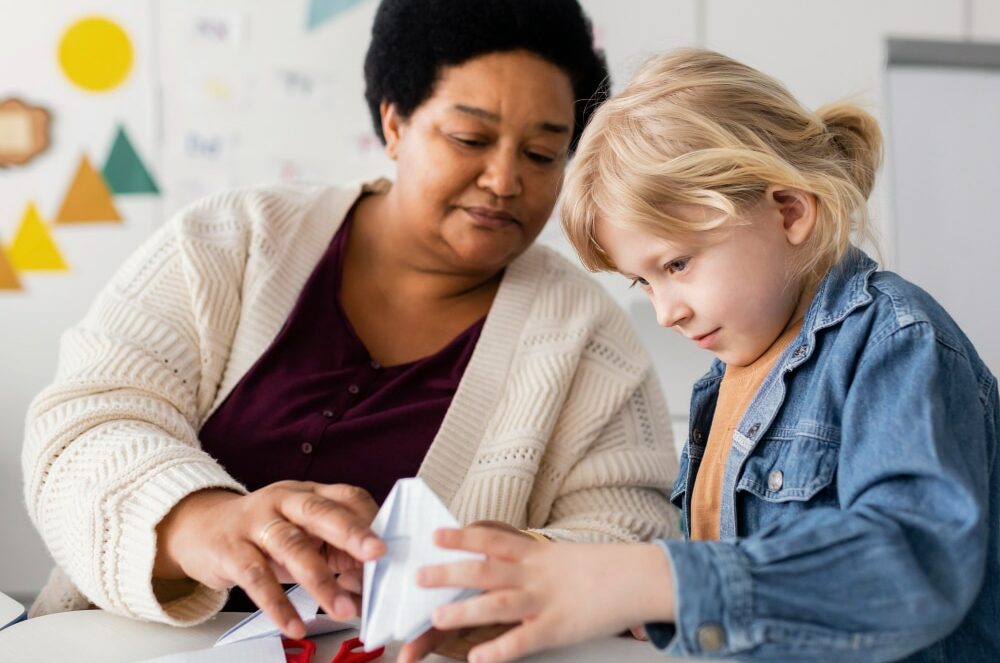Table of Contents
Explicitly or implicitly, educators, students, and families have used social emotional learning strategies and skills to transform their relationships during the pandemic. Communication with families increased, as did communication among educators and leaders. Collaboration with families shifted as students needed to learn at home.
John Hattie (2009) tells us those teacher/student relationships have an effect size of .72 (almost one standard deviation). “Students who have a sense of belonging and purpose, who can work well with classmates and peers to solve problems, who can plan and set goals, and who can persevere through challenges—in addition to being literate, numerate, and versed in scientific concepts and ideas—are more likely to maximize their opportunities and reach their full potential” (Jones & Kahn, 2017). The skills and behaviors Jones and Kahn spell out seem similar to those listed by CASEL (2023) as part of social emotional learning.
Collaboration for Social Emotional Learning
Learning to leverage technology on both sides of the screen required collaboration and intentional communication. Having seen students’ homes or the space they used for learning at an intimate level and having (in some cases) more ready access to families provided insights previously unavailable. Figuring out how to use that information to foster relationships when students are present in schools is strategic.
When school community members are sensitive to each other’s emotional needs and perspectives, it creates a more positive emotional climate for learning and thriving. Healthy relationships require the skills and desire to communicate clearly, listen well, cooperate, negotiate, and resolve differences. Authentic partnerships form.
The Importance of Trust
Trust is key for all relationships to reach their full potential. It’s no different in schools. Trust starts by building a relationship with your learners (and their families). What do you know about each as an individual? Quate and McDermott (2009) tell us “… that the development of a nurturing classroom community in which students are known well by both the teacher and their classmates matters…” trust is gained when learners see that you know them and believe in them.
Trust requires both physical and emotional safety. When students feel safe from physical harm, they can focus on learning. Offering a safe place to take academic risks as part of learning also helps build trust. Establishing strategies, processes, and routines helps alleviate students’ stress about what’s next and what they should or could do.
These predictable supports for learning allow students to focus. Students can more readily own their behaviors when the relationships and environment are consistent, equitable, and fair (self-manage). Meeting expectations (social, academic, and behavioral) that have been shared and discussed is much easier and makes sense to students.
Social Emotional Learning Relationship Skills
The Search Institute created a Building Developmental Relationships Checklist in 2020. Although designed for use during the COVID-19 crisis, this checklist includes five relationship-building steps with multiple strategies to support each step, which include ideas like expressing care, pushing students to get better, providing support, giving students voice and choice, and expanding possibilities.
Think about relationships you have (or had) in school. Which previous ideas made a difference to you personally as a learner? Which of these strategies do you consistently practice with your learners?
When you did (or do) work with learners remotely, what strategies did (or do) you use to keep connected with learners? Which were (are) most effective? (And how do you know they were effective?) Are you now using the remote learning communication practices that helped you build stronger relationships with students and families?
Modeling Behaviors for Students
The relationship skills outlined in SEL include clear communication, active listening, cooperation, self-management, conflict resolution, and checking to understand (academic and social). As educators working to build relationships with learners, modeling the behaviors and skills we want to see one way to support teaching them.
Another is developing the classroom learning team (the teacher, individual learner, and peers). These skills can be challenging to learn. These skills fit into the durable skills category employers look for.
Regularly employing strategies and routines that allow learners to practice communication, check for understanding, practice self-awareness (academic and social), and self-management as part of the classroom learning team gives them multiple opportunities to develop and deepen relationships in the classroom.
Learning and practicing these skills in a safe environment supported by mutual experiences prepares students for other relationships. Developing solid relationships can help in dealing with stress and better health. Having people to count on can make a big difference in learners’ lives.
Strategies For Using Social Emotional Learning to Develop Relationships
- Although labeled a “COVID Check-in Survey,” Harvard’s survey for educators to use with students contains simple questions appropriate for in-person and virtual learning situations. Assessing where students are and using the results to better support them as part of demonstrating care and building trust.
- Using chats and polls in an online environment created levels of comfort and equity for some learners that don’t exist in the classroom. It is a strategy that may also be useful in a physical environment.
Resources
- Hattie, J. (2009). Visible learning: A synthesis of over 800 meta-analyses relating to achievement. Routledge.
- Quate, S. & McDermott J. (2009). Clock watchers: Six steps to motivating and engaging disengaged students across content areas. Heinemann.
- Brené Brown explains the misconception around feelings of guilt and shame – ABC News.
- Educator Well-Being 2.0 – ASCD







